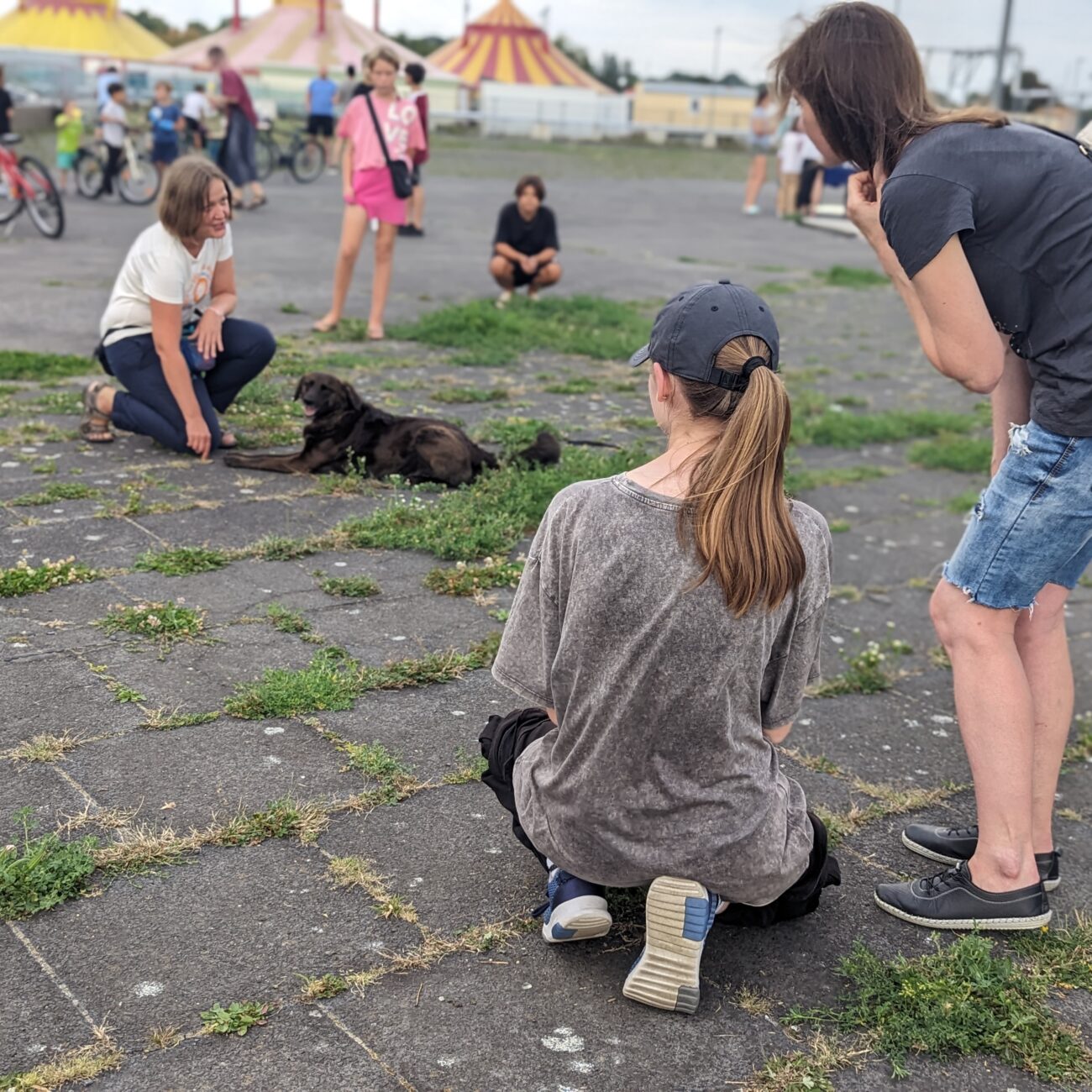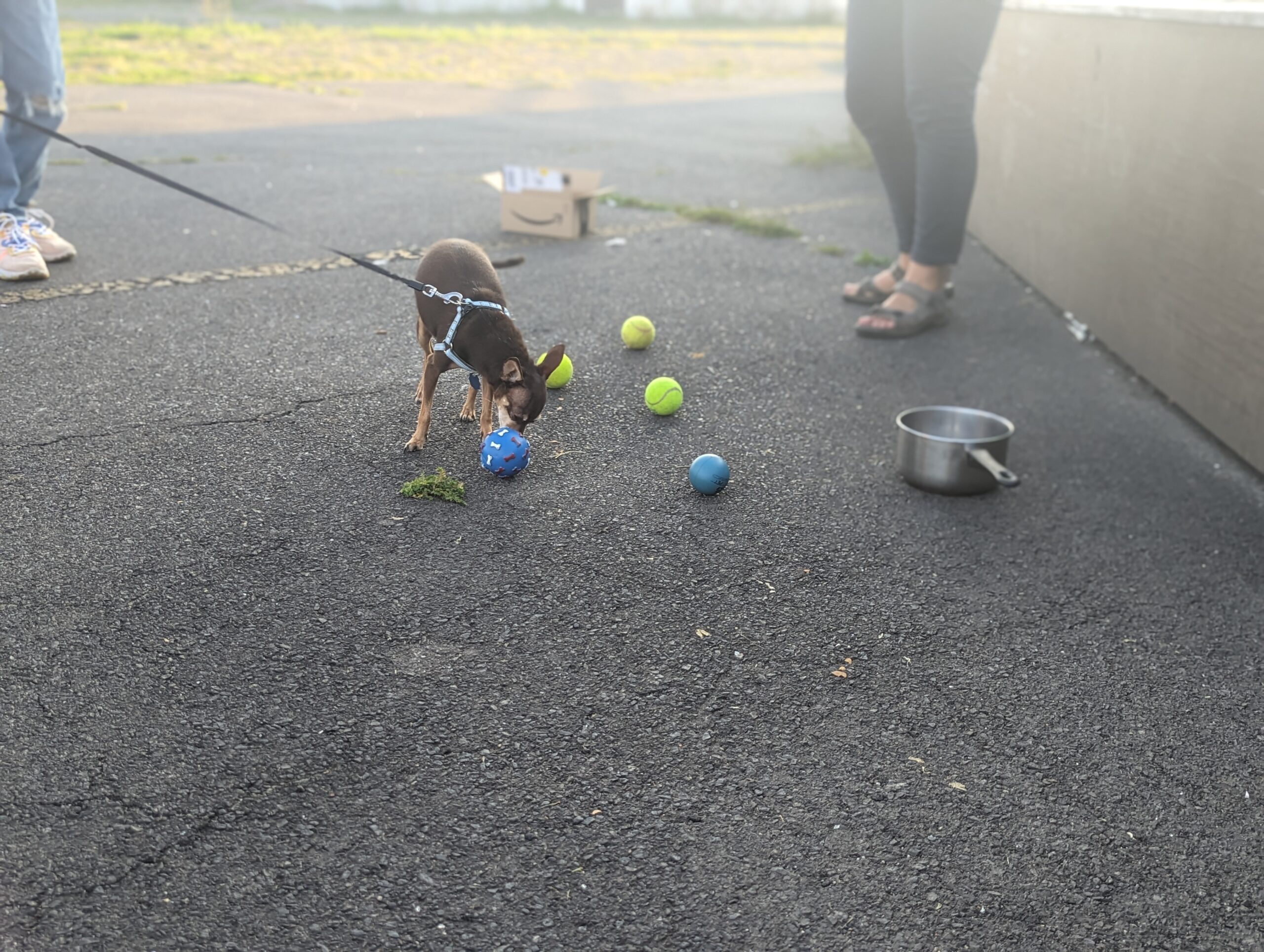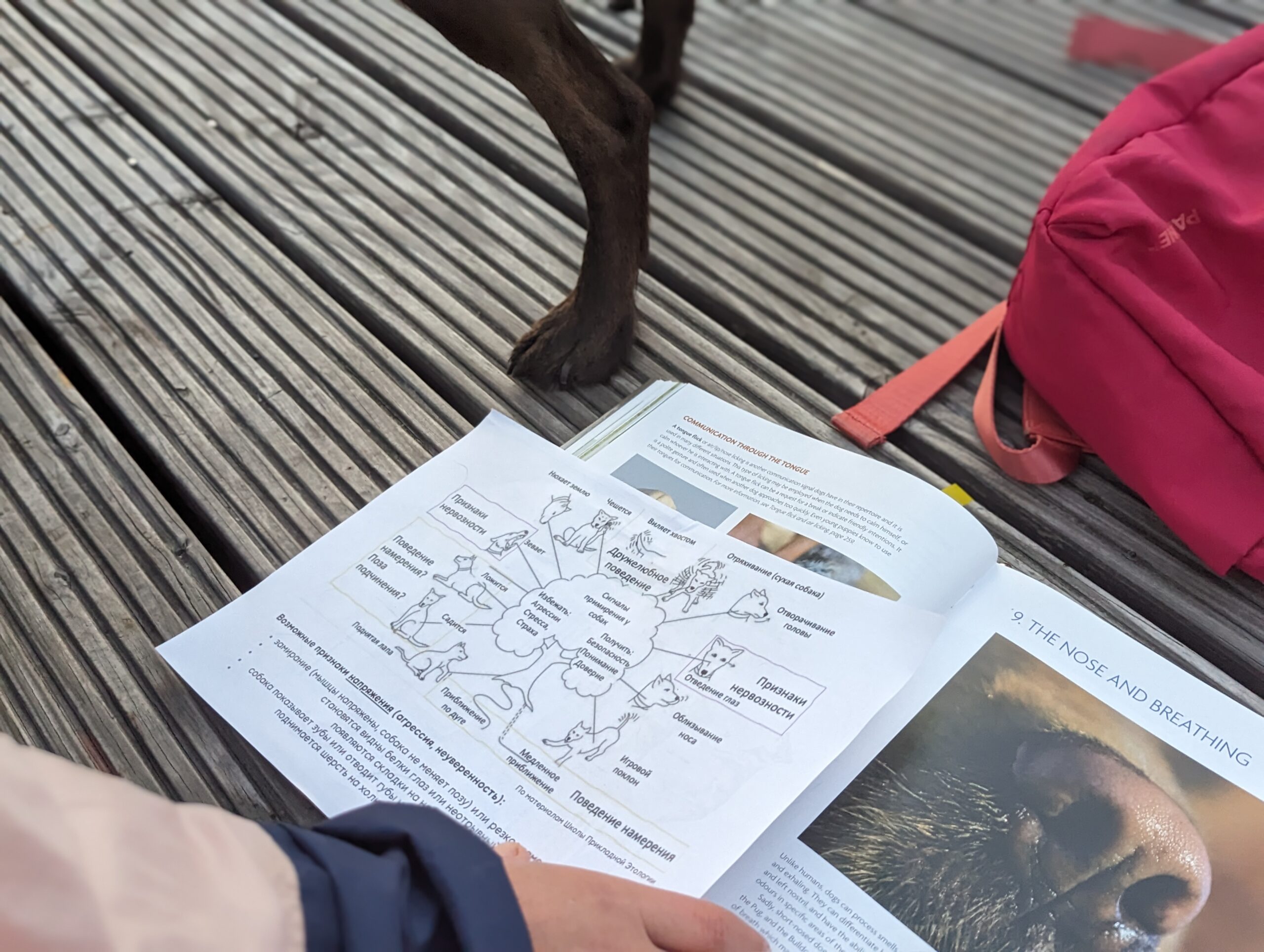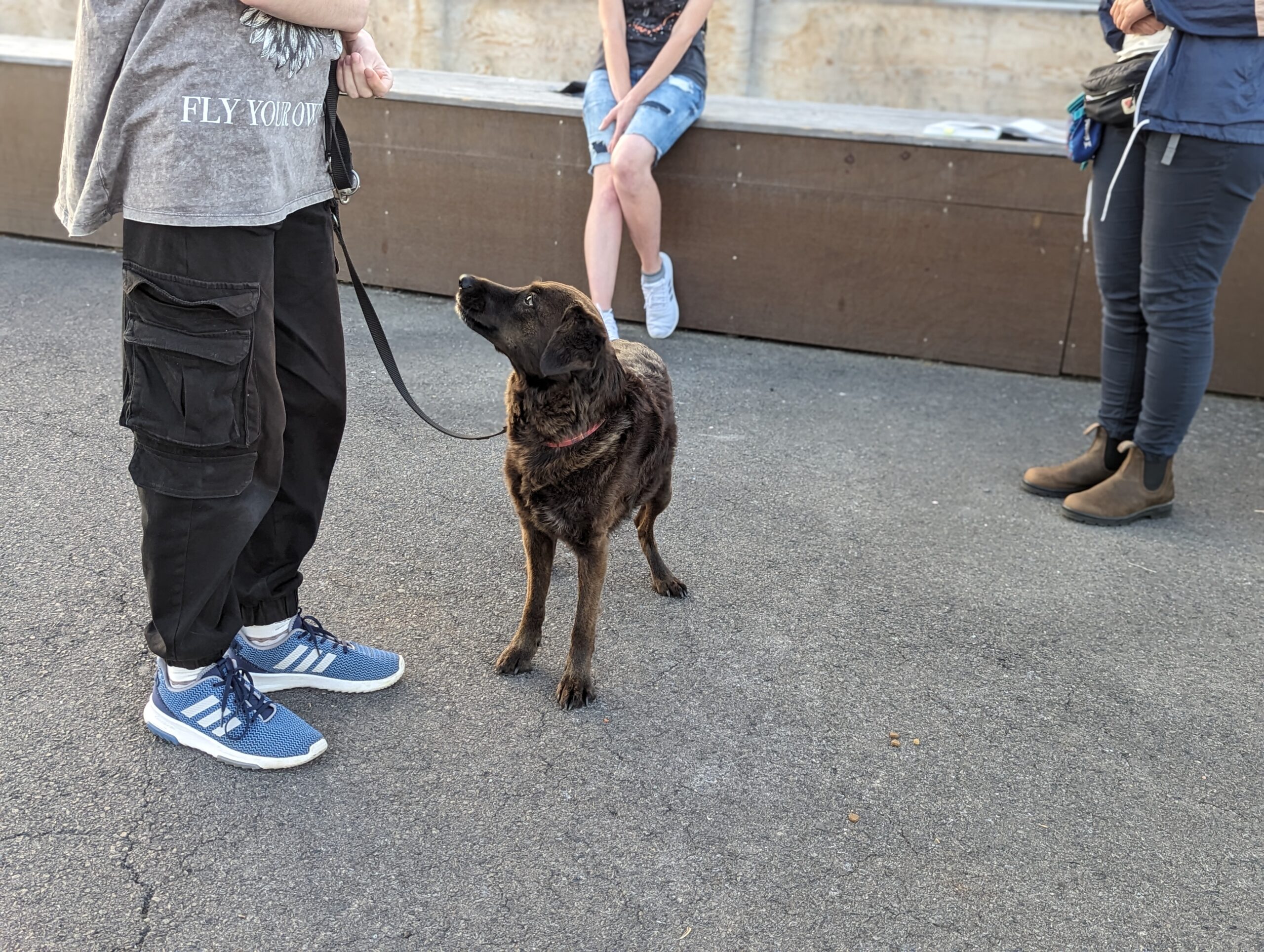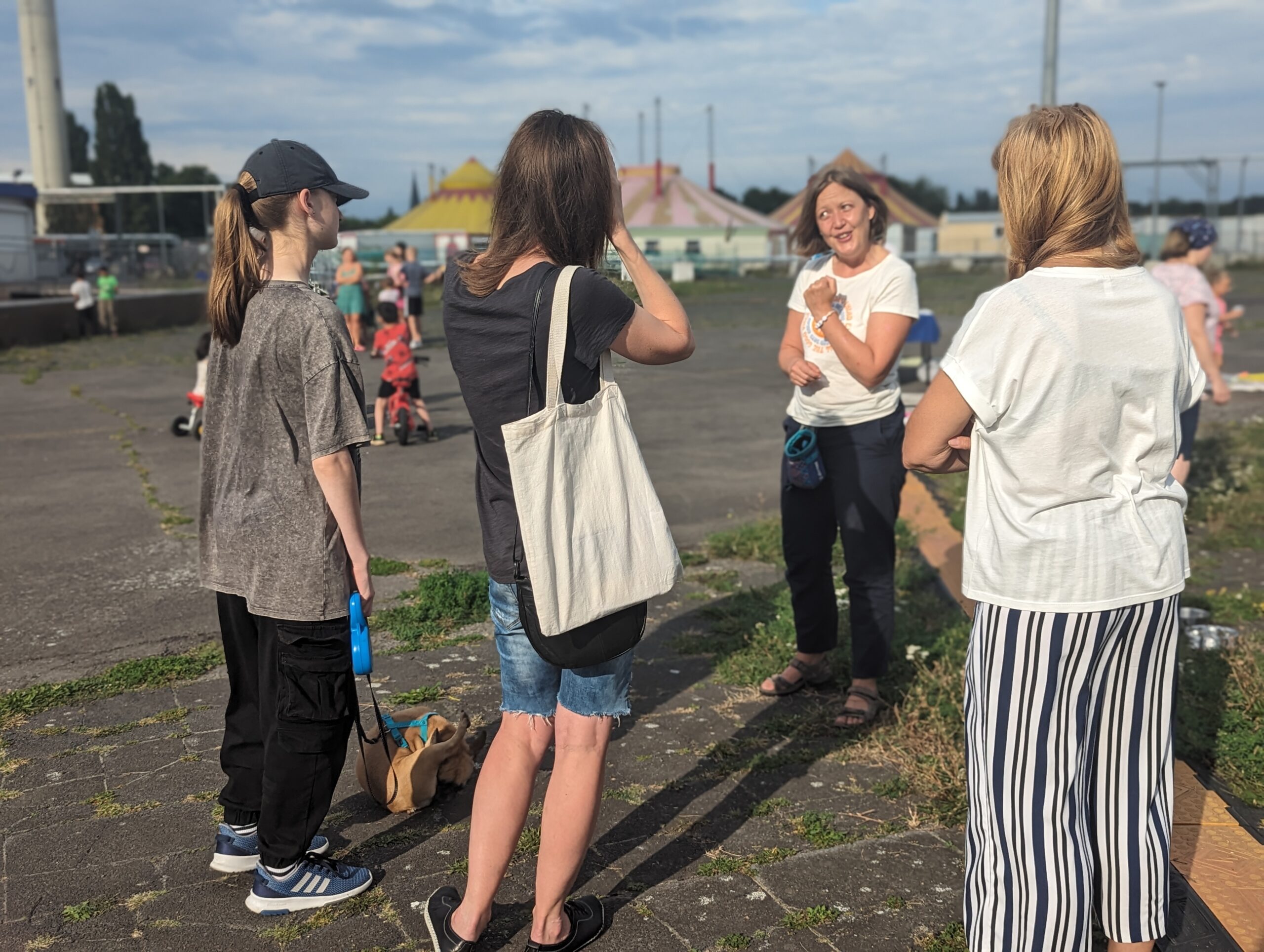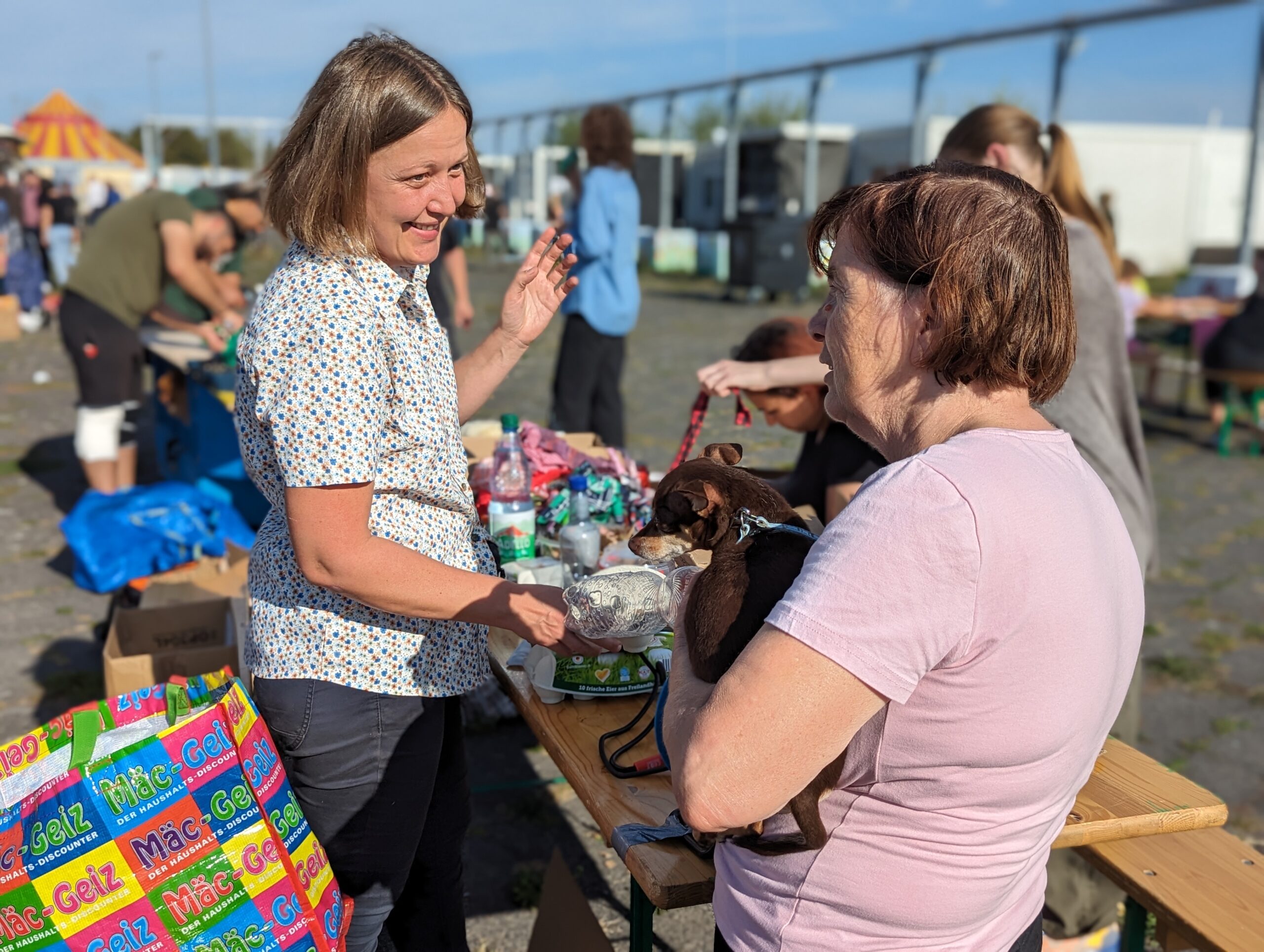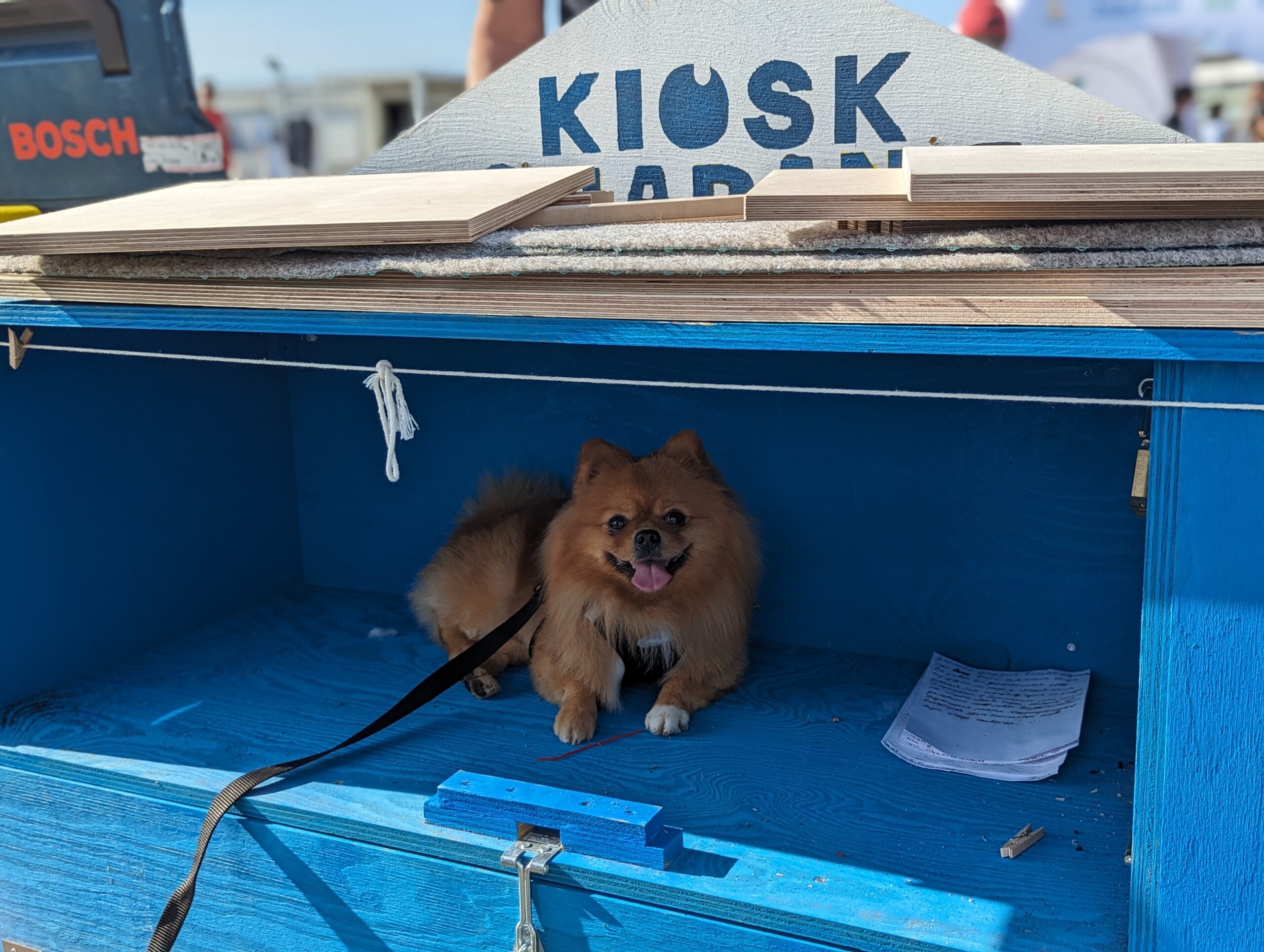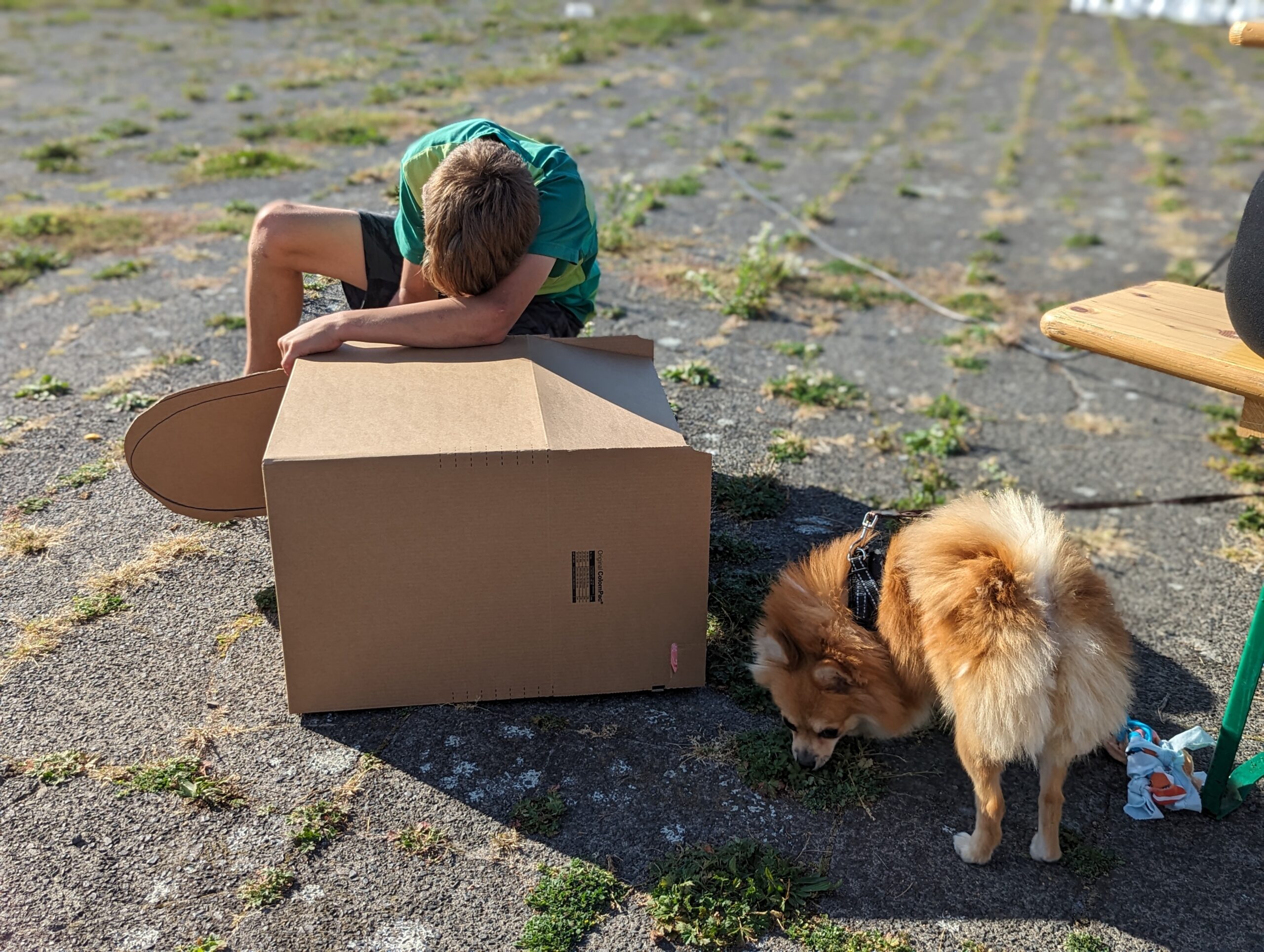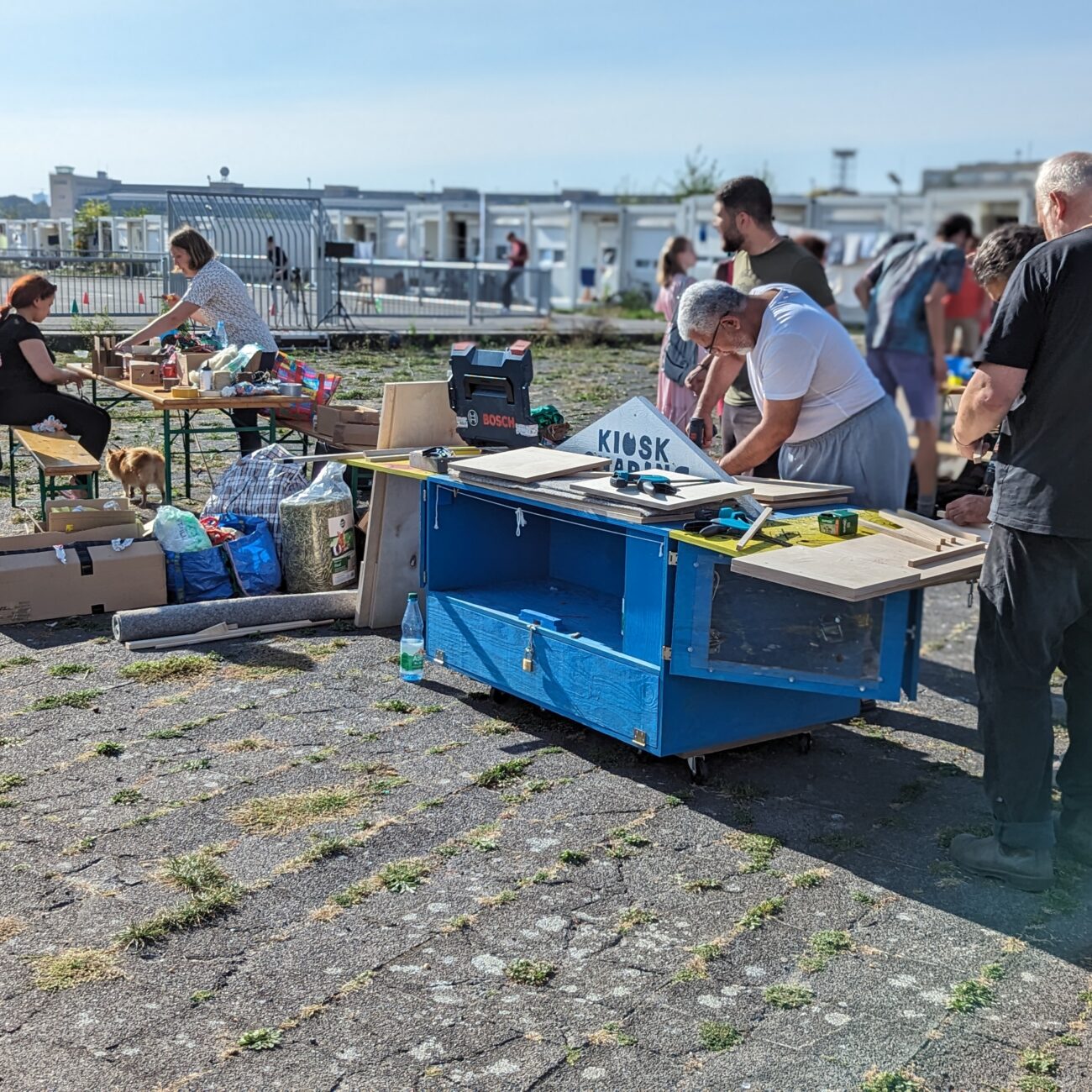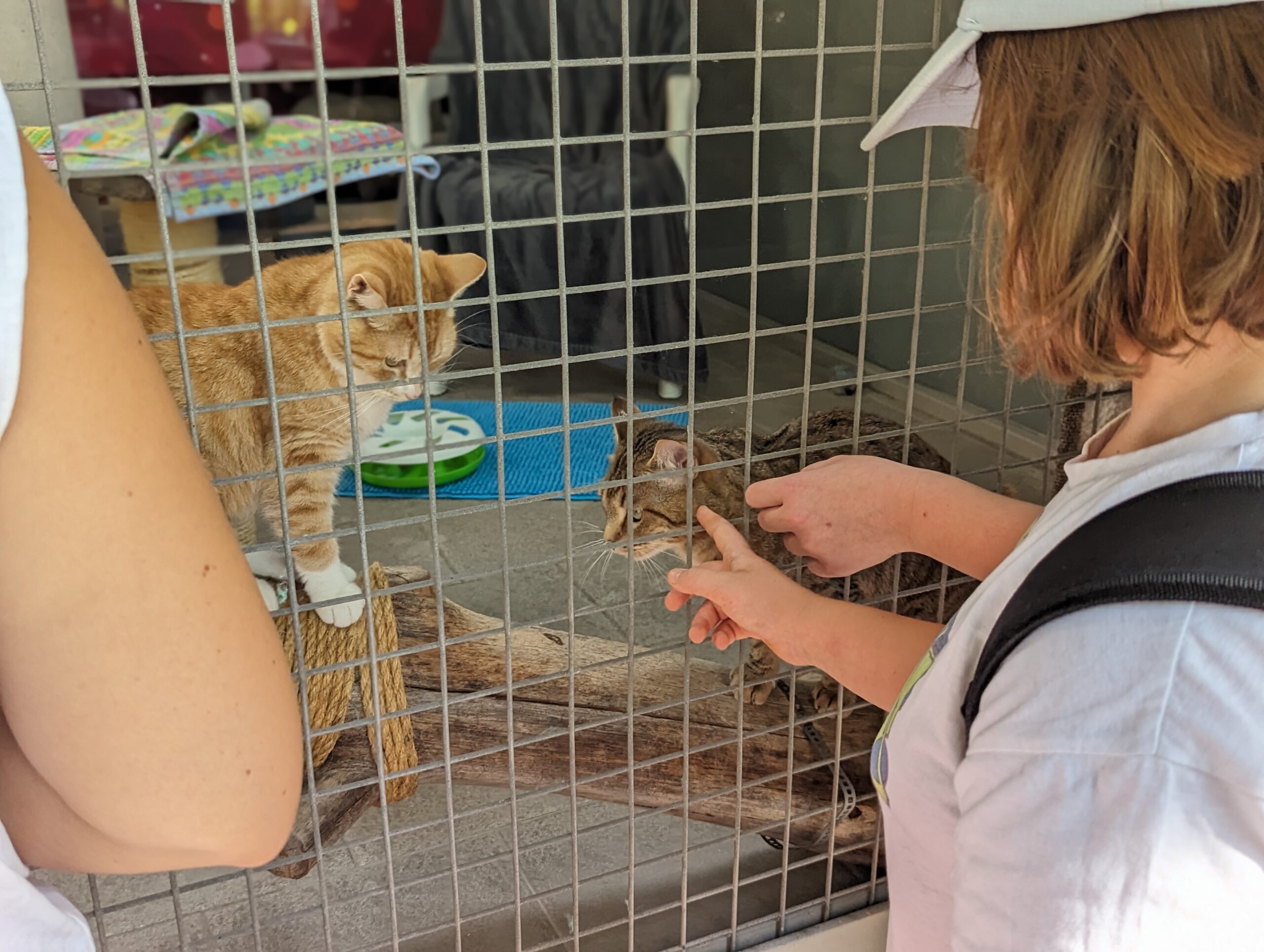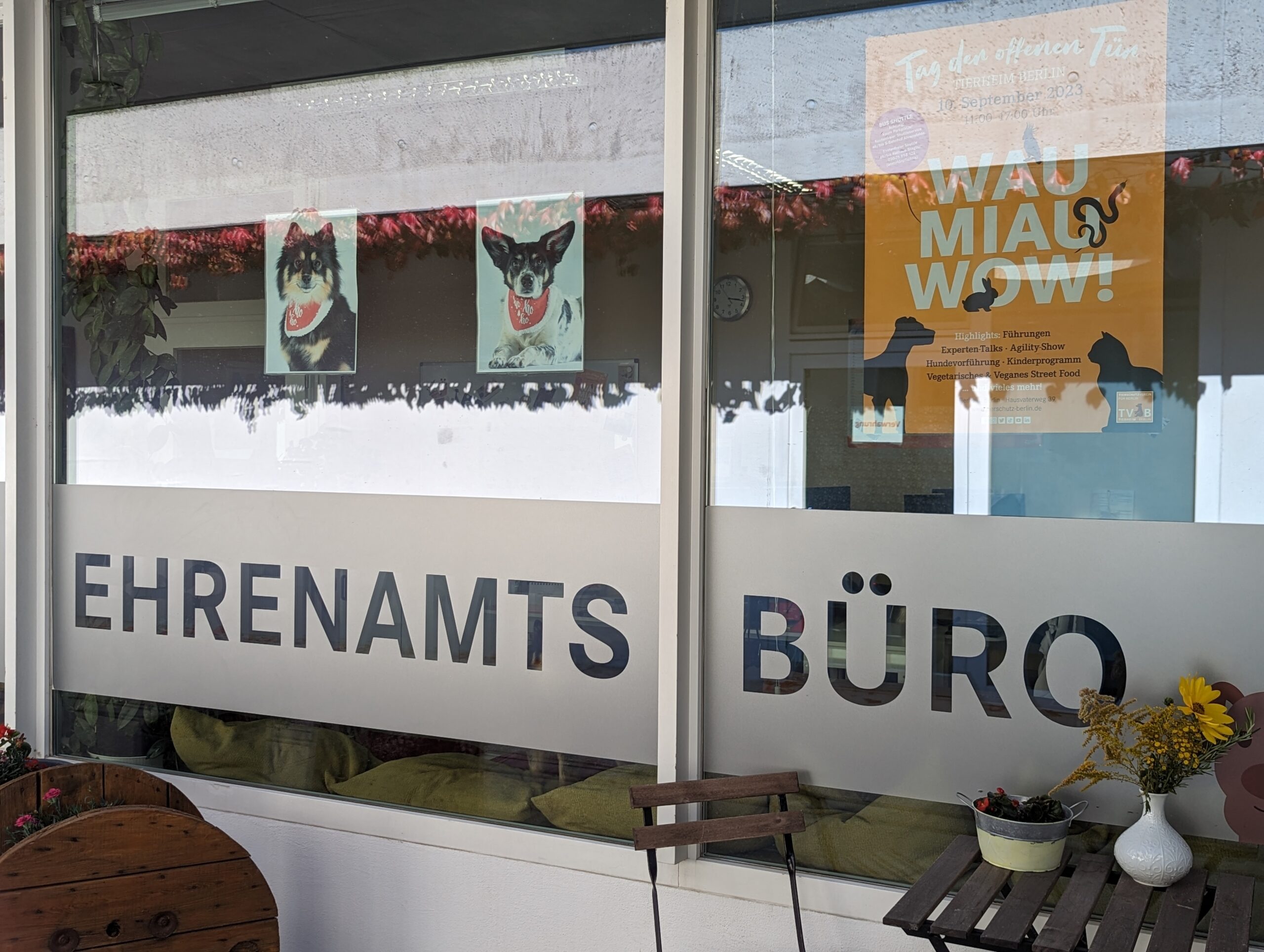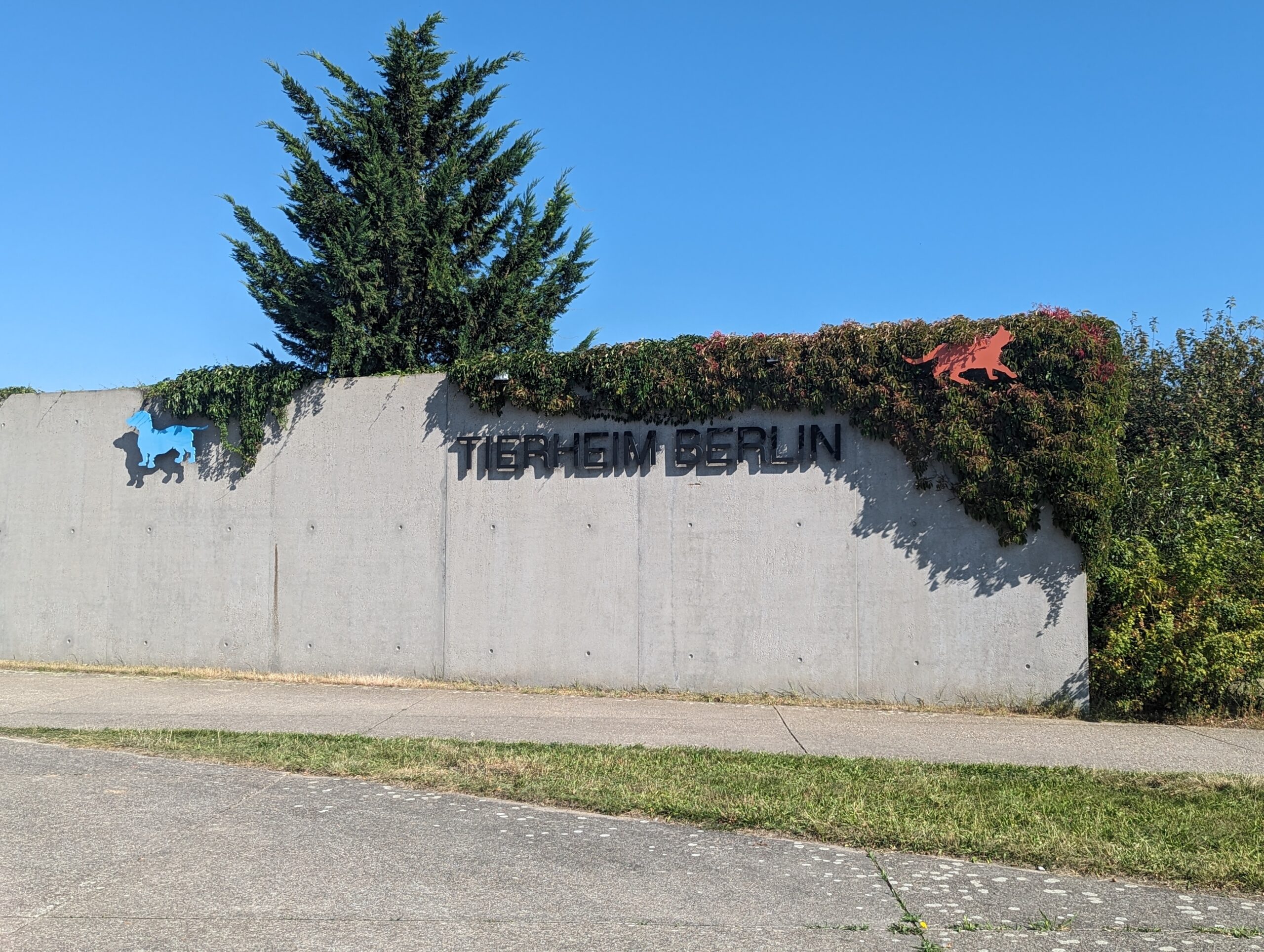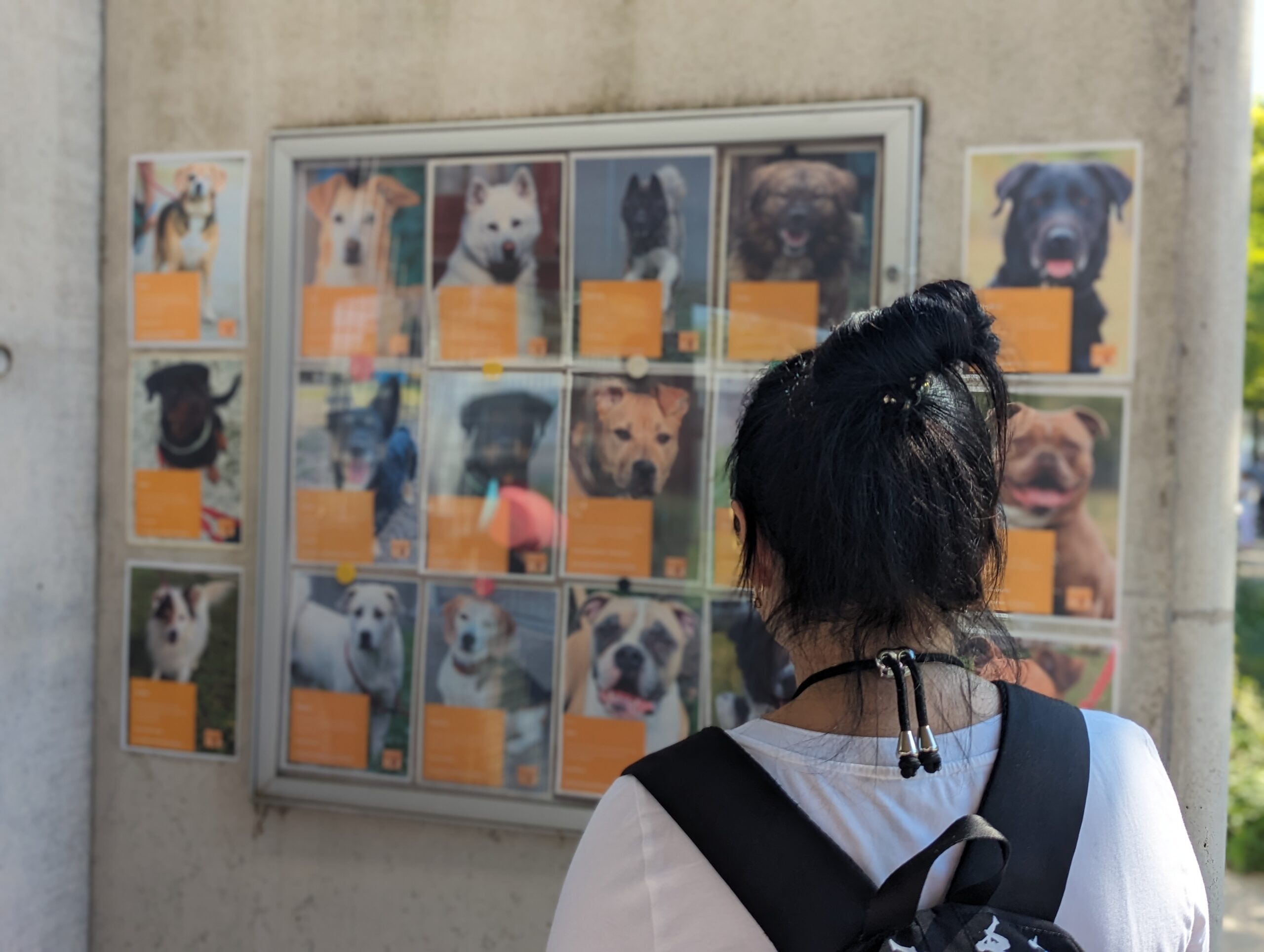At the Columbiadamm refugee shelter, the Sharing Kiosk became a gathering place for people who had fled with their pets, providing support and a space for exchange to meet the unique needs of these families and their animals in a challenging environment.
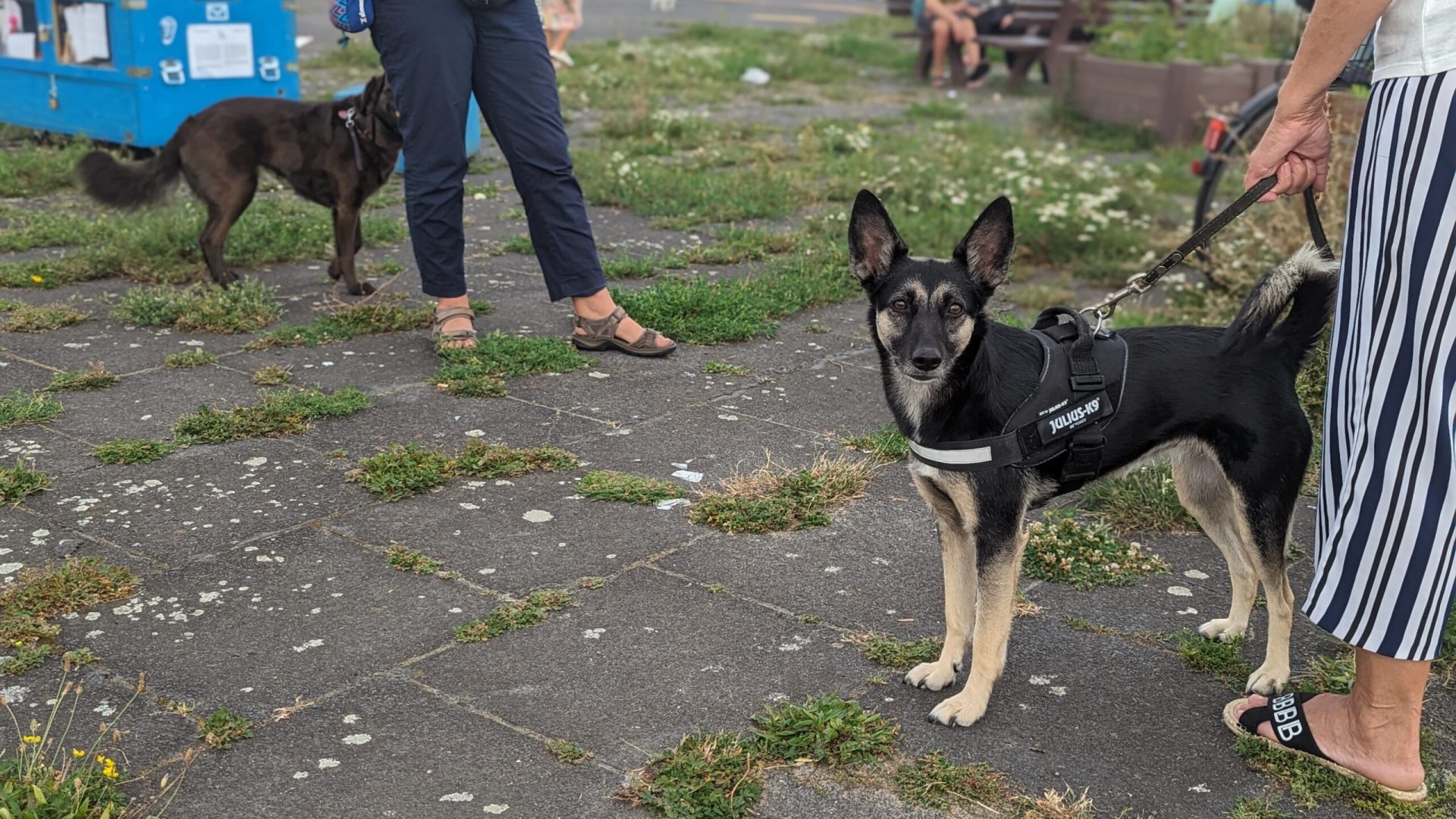
At the Columbiadamm refugee accommodation centre, the Sharing Station has become a meeting place for people who have fled with their pets. It is the only place in Berlin where people are allowed to stay with their pets. At a time when people had to leave everything behind, their pets gave them invaluable support. But not only did the war and the escape leave deep scars on people, their pets were also badly affected by the changes. To support these special families, the Sharing Kiosk became a weekly meeting place for people and their pets.
There is often a lack of positive stimulation for pets in homes and especially in refugee accommodation, which can lead to boredom and depression in dogs and cats. Among other things, they need an environment where they can play to use their senses and reduce stress. It is therefore important to provide them with appropriate toys and activities. In collaboration with the residents, we have created a range of activity toys using commonly available and natural materials. We also took into account the needs of older animals and built special bed ramps to enable them to climb onto raised surfaces in the container flats.
We also talked about how to help animals after traumatic experiences and how small changes in environment and care can have a positive impact on their health. There were also workshops on animal body language and clicker training.
People came together to share their experiences and give each other advice. There were also two people in the group who were unable to take all of their pets with them. In order to maintain a connection with the animals despite this challenge, they decided to volunteer at the Berlin animal shelter. Together with local residents, we attended the shelter’s open day and explored with the volunteers how they could contribute in a meaningful way despite language barriers.
